
Bamako is the capital and largest city of Mali, with a 2022 population of 4,227,569. It is located on the Niger River, near the rapids that divide the upper and middle Niger valleys in the southwestern part of the country.

Modibo Keïta was a Malian politician who served as the first President of Mali from 1960 to 1968. He espoused a form of African socialism. He was deposed in a coup d'état in 1968 by Moussa Traoré.

Ibrahim Boubacar Keïta, often known by his initials IBK, was a Malian politician who served as the president of Mali from September 2013 to August 2020, when he was forced to resign in the 2020 Malian coup d'état. He served as Mali's prime minister from February 1994 to February 2000 and as president of the National Assembly of Mali from September 2002 to September 2007.

Souleymane Cissé is a Malian film director, regarded as one of the first generation of African filmmakers. He has been called "Africa's greatest living filmmaker" while his film Yeelen has been called "conceivably the greatest African film ever made."

Amadou & Mariam are a musical duo from Mali, composed of the Bamako-born couple Amadou Bagayoko and Mariam Doumbia (vocals).
Seydou Keïta was a Malian photographer known for his portraits of people and families he took at his portrait photography studio in Mali's capital, Bamako, in the 1950s. His photographs are widely acknowledged not only as a record of Malian society but also as pieces of art.

The Budapest-Bamako or Great African Run is a charity car race in Africa, and the largest amateur rally in the world. It is a low-budget version of the Dakar Rally, and goes from Budapest, Hungary to Bamako, Mali through the Sahara. It passes through Hungary, Austria or Slovenia, Italy, France, Spain, Morocco, Mauritania and Mali. The Budapest-Bamako was inspired by the Paris-Dakar Rally. There are few entry restrictions: as long as a vehicle is street legal, it can join the event.

Aoua Kéita was a Malian independence activist, politician and writer.
Malick Sidibé was a Malian photographer from a Fulani village in Soloba, who was noted for his black-and-white studies of popular culture in the 1960s in Bamako. Sidibé had a long and fruitful career as a photographer in Bamako, Mali, and was a well-known figure in his community. In 1994 he had his first exhibition outside of Mali and received much critical praise for his carefully composed portraits. Sidibé's work has since become well known and renowned on a global scale. His work was the subject of a number of publications and exhibited throughout Europe and the United States. In 2007, he received a Golden Lion for Lifetime Achievement at the Venice Biennale, becoming both the first photographer and the first African so recognized. Other awards he has received include a Hasselblad Award for photography in 2003, an International Center of Photography Infinity Award for Lifetime Achievement (2008), and a World Press Photo award (2010).
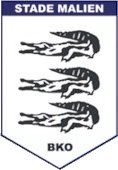
Stade Malien is a Malian professional football and sports club based in Bamako. One of the two dominant clubs of Malian football, their eastern Bamako training grounds host other sports as well, including a successful basketball club.

Education in Mali is considered a fundamental right of Malians. For most of Mali's history, the government split primary education into two cycles which allowed Malian students to take examinations to gain admission to secondary, tertiary, or higher education. Mali has recently seen large increases in school enrollment due to educational reforms.
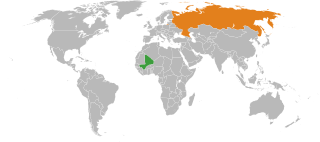
Mali–Russia relations are the bilateral relations between Mali and Russia.
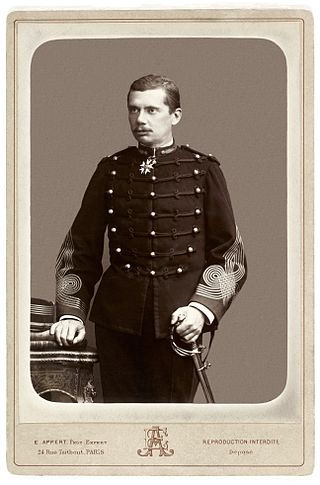
Gustave Borgnis-Desbordes was a French general. He was a major figure in the French Imperial conquest of the French Sudan, modern Mali. He was Commandant-Superior of the French Military Territory of Haut-Sénégal, attached to the colonial government of Senegal, 1880 to 1883.

In Mali, football is played widely and followed avidly, football is the most popular sport in Mali. Large professional clubs and international competition draw much popular attention, and the sport is played as a pastime.
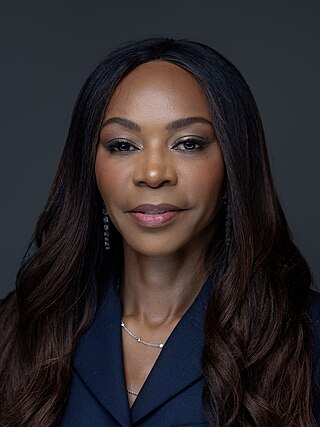
Dambisa Felicia Moyo, Baroness Moyo is a Zambian-born economist and author, known for her analysis of macroeconomics and global affairs. She has written five books, including four New York Times bestsellers: Dead Aid: Why Aid Is Not Working and How There Is a Better Way for Africa (2009), How the West Was Lost: Fifty Years of Economic Folly – And the Stark Choices that Lie Ahead (2011), Winner Take All: China's Race for Resources and What It Means for the World (2012), Edge of Chaos: Why Democracy Is Failing to Deliver Economic Growth – and How to Fix It (2018), and How Boards Work: And How They Can Work Better in a Chaotic World (2021).

Niankoro Yéah Samaké is a social entrepreneur and politician from Ouélessébougou, Mali. Samaké served as the Malian Ambassador to India. He was nominated by the Malian President Ibrahim Boubacar Keïta in May 2015 and he assumed the post in 2015. He was recalled from the post in 2018 for "incompetence." When he returned to Mali he organized for his political party to have a parade in his honor to celebrate his return. Samaké is the executive director of the Empower Mali Foundation, former mayor of Ouélessébougou, Vice President of Mali's League of Mayors, and was a candidate in the 2013 Malian presidential election.

The 2012 Malian coup d'état began on 21 March that year, when mutinying Malian soldiers, displeased with the management of the Tuareg rebellion, attacked several locations in the capital Bamako, including the presidential palace, state television, and military barracks. The soldiers, who said they had formed the National Committee for the Restoration of Democracy and State, declared the following day that they had overthrown the government of Amadou Toumani Touré, forcing him into hiding. The coup was followed by "unanimous" international condemnation, harsh sanctions by Mali's neighbors, and the swift loss of northern Mali to Tuareg forces, leading Reuters to describe the coup as "a spectacular own-goal". On 6 April, the junta agreed with Economic Community of West African States (ECOWAS) negotiators that they would step down from power in return for the end of sanctions, giving power to a transitional government led by parliament speaker Dioncounda Traoré. In the following days, both Touré and coup leader Amadou Sanogo formally resigned; however, as of 16 May, the junta was still "widely thought to have maintained overall control". On 3 December 2013, a mass grave was discovered in Diago holding the remains of 21 soldiers that went missing the year before, loyal to the ousted president.
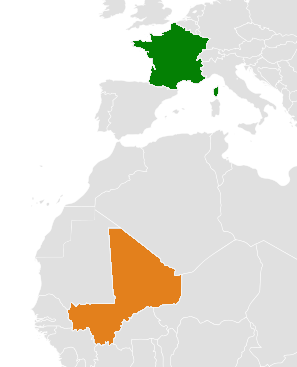
France–Mali relations are the current and historical relations between France and Mali.
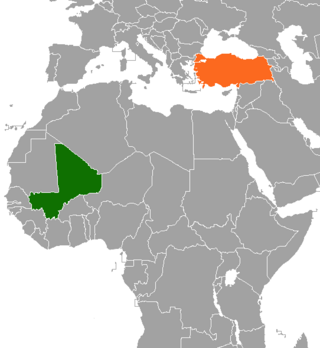
Mali–Turkey relations are the foreign relations between Mali and Turkey. Turkey has an embassy in Mali since February 1, 2010 and Mali opened an embassy in Ankara on June 27, 2014.

















